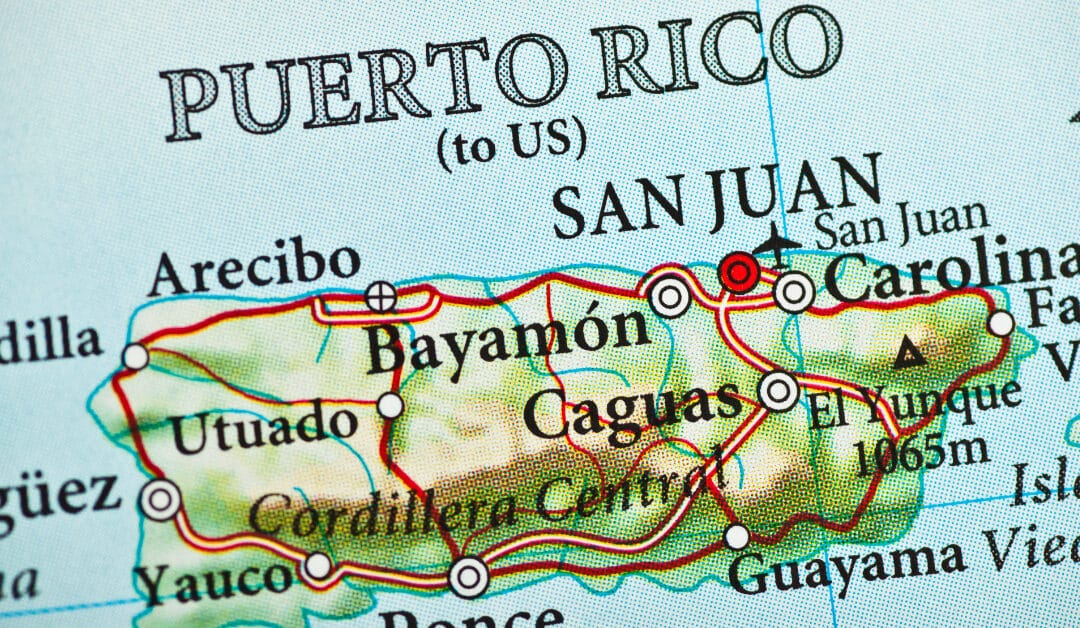Puerto Rico is a great place to take a vacation. There are beautiful beaches and amazing nature, all of which lead to mind-blowing landscapes. You could go snorkeling, have fun driving a jet ski, or try their traditional food.
But one of the coolest things you could do is speak to their awesome people, or should we say boricuas, as they call themselves? That’s the best way you’ll learn about their country, culture, and ways of living. Plus, if you’re learning Spanish, speaking to them will help you a lot.
One of the things you must know when speaking to them are Puerto Rican Spanish idioms. You’ll understand natives better if you know their everyday expressions.
15 Puerto Rican Idioms
1. Estar como sapo de letrina
Literally, this means “to be like a toad of latrine”. But it actually means to be full, so it’s used when you’ve eaten way too much.
This idiom refers to when latrines existed in Puerto Rico and, therefore, there were many insects around. So, the sapos (toads) would eat very well.
2. ¿Qué es la que hay?
Do you want to say hi to someone and ask how they’re doing in a very chill way? Easy, just ask them Qué es lo que hay? It’s like saying “what’s up?” And you’re going to hear many boricuas say that phrase, so get used to it.
3. Afrenta’o / Afrenta
This is the contraction of afrentado. It’s used to say that someone is selfish and doesn’t want to share something; it’s especially used in terms of food. Basically, they’re greedy.
For example: Miguel es un afrenta’o, no me compartió de sus papas fritas a pesar de que moría de hambre. (Miguel is greedy; he didn’t share his fries with me even though I was starving.)
4. Ir a las millas de chaflán
This is used when someone drives very fast. Chaflán” is “chamfer”. This idiom comes from how fast people can drive where there’s a chamfer corner.
For example: ¡Dios mío, ese motociclista va a las millas de chaflán! (Oh my god, that motorcyclist goes faster than lightning!)
5. Colgar
Literally, this means to hang. But in Puerto Rico, it means to fail at school. So, when someone says esa persona se colgó it means that that person failed and “me colgué” means I failed.
6. Ser tostón
The tostón is a Caribbean dish that consists of fried green plantain seasoned with salt. But in Puerto Rico it’s also a word used for a problem or a difficult situation.
For example: Tremendo tostón te vas a llevar cuando tu mamá vea que reprobaste matemáticas. (What a problem you’re going to get into when your mom sees you failed math.)
7. Por un tubo y siete llaves
Literally this means “for/through a tube and seven keys”. It might sound a bit weird, but it’s actually used to say “a lot” or “very much”.
8. Muerto el pollo
Literally this could sound sad or horrible, as it means “the chicken is dead”. But it’s used to say that something, like a task, is done and finished.
For example: Let’s say your mom asks you to clean your room, when you finish tell her: Muerto el pollo, mi cuarto está reluciente. (It’s done, my room is shiny.)
9. Chavo
Chavo means money. So, tener chavo means to have money and no tener chavo means to not have money.
10. Jurutungo viejo
Jurutungo viejo is how boricuas refer to a very faraway place. So, this idiom is used when something is very far away.
For example: Mi escuela está en el jurutungo viejo. (My school is very far away.)
Or: Mi novio vive en el jurutungo viejo. (My boyfriend lives very far away.)
11. Meter los mochos
This means “to lie”.
12. Se lo llevó Pateco
This says “Pateco took him” and it means someone died. In 1899, there were, sadly, many epidemics and dead people due to the huracan San Ciriaco. So, it was ordered to leave the bodies at the entrance of the San Juan cemetery. From there, a gravedigger, named Pateco, would pick up and bury the bodies. That’s where this idiom comes from.
13. ¡Anda pa’l sirete!
This is an expression used when you’re scared, shocked, or surprised.
14. A fuego
It means to be good or excellent. You can say this to a person or about a thing or situation. This phrase is more popular among young people.
For example: La fiesta estuvo a fuego. (The party was amazing.)
15. Dar pon
This means “to give a ride”. So, if you’re lost in Puerto Rico with no money and want to ask for a ride, you would say: Por favor, dame pon.
Practice Your Puerto Rican Spanish Idioms with Us
Have you memorized these useful Puerto Rican Spanish everyday expressions? Great! That’s a good first step. Now, you need to put them into practice. Otherwise, your knowledge won’t be of much help. You might be able to write them down, but you won’t be able to use them in a conversation with locals.
We know how nervous you can get when speaking in Spanish for the first time, even more, if it’s with natives. So here are a few options you can do to prepare yourself.
You can look up some Puerto Rican YouTubers of any content you enjoy and watch their videos. You’ll listen to how they speak, the idioms they use, and their pronunciation. That’ll help you absorb Puerto Rican Spanish more easily.
After you’ve listened to the pronunciation, repeat every idiom in this list out loud. Over and over again until you feel like you don’t stutter anymore. You might feel embarrassed at first, but don’t be, we all start like that!
Talk in Puerto Rican Spanish with other Spanish learners. You don’t even have to talk about classes or studying. You can talk about your hobbies, your careers, your pets, or about anything you want. Just make sure you speak Spanish and use these idioms. Speaking with fellow students will make you feel in a safe environment, as everyone is learning.
Take TruFluency classes for Spanish learning! We will help you become fluent in Spanish through our Bellieu Method. It consists of speaking right after you’ve learned something new. So you won’t forget what you’ve learned and will know how and when to use it.
Our classes’ environment is completely safe because we understand that mistakes are normal in every language journey. No judgment here, just fun and learning.
Take a trial class with one of our native Puerto Rican Spanish tutors and see how they can help you learn more Spanish idioms and other useful things. You’ll notice a great difference in your Spanish skills.





